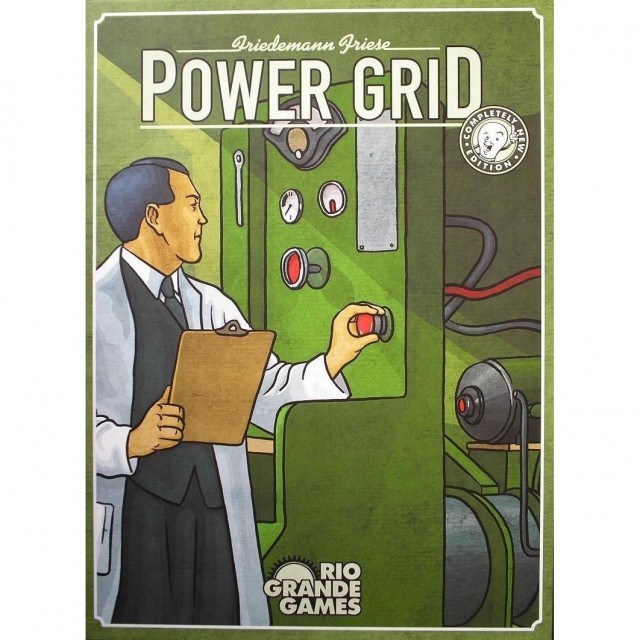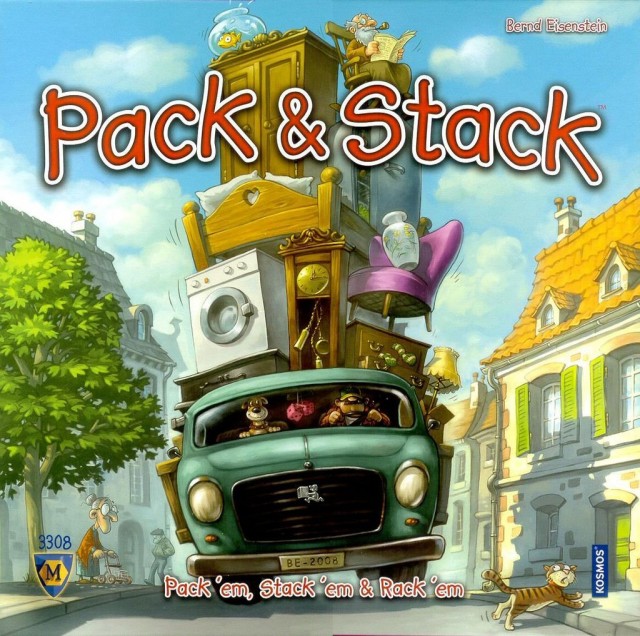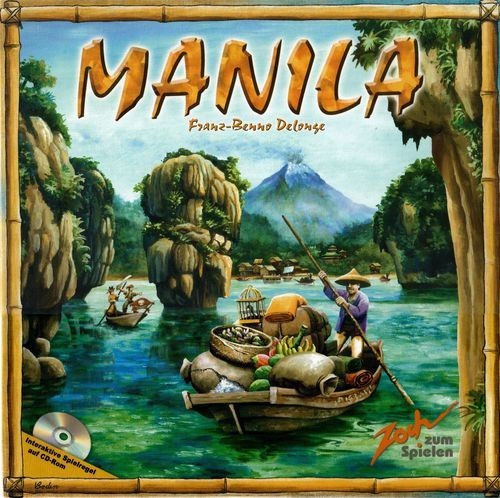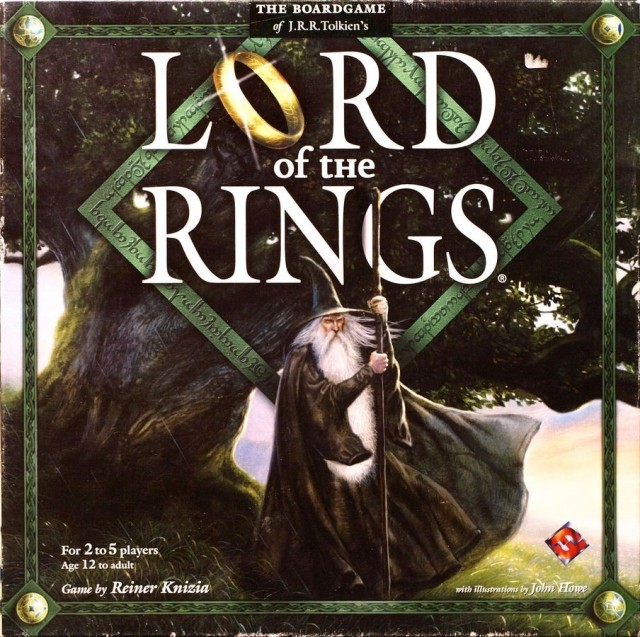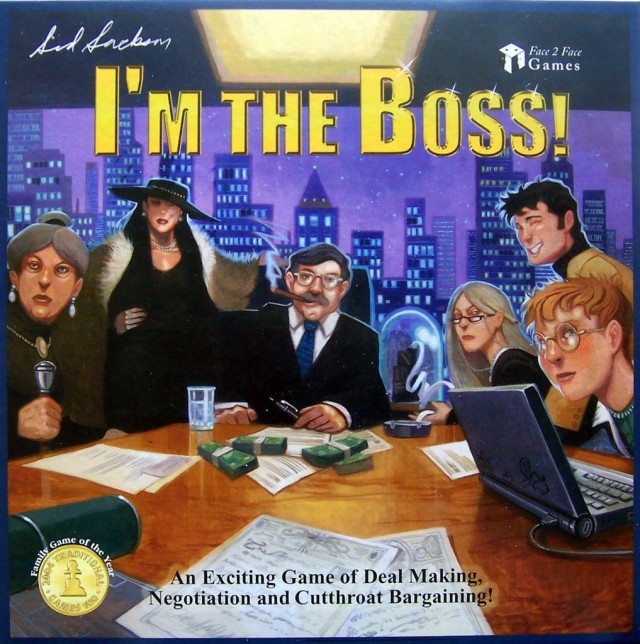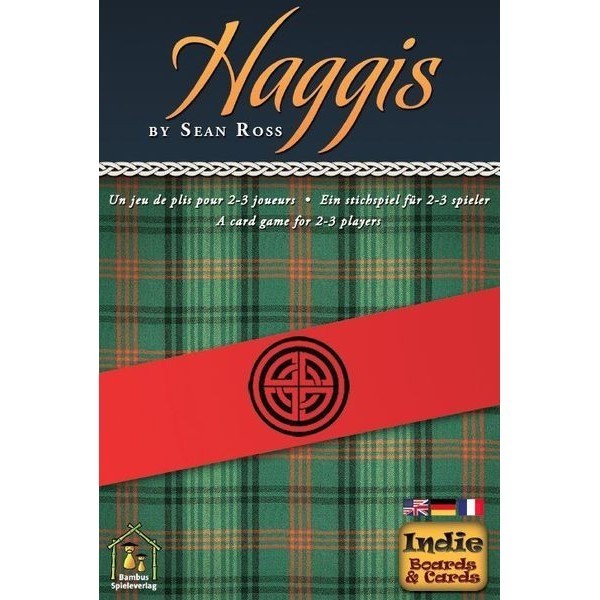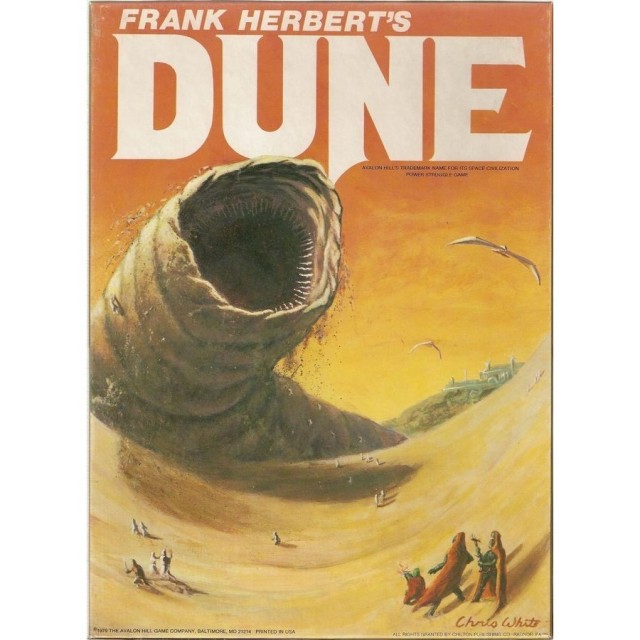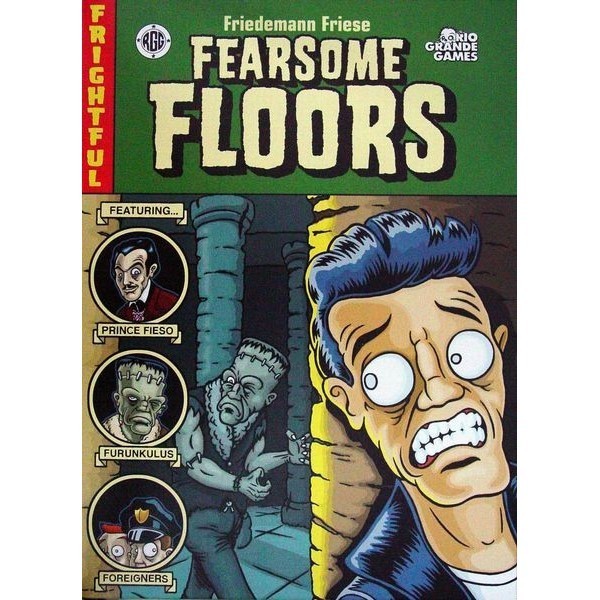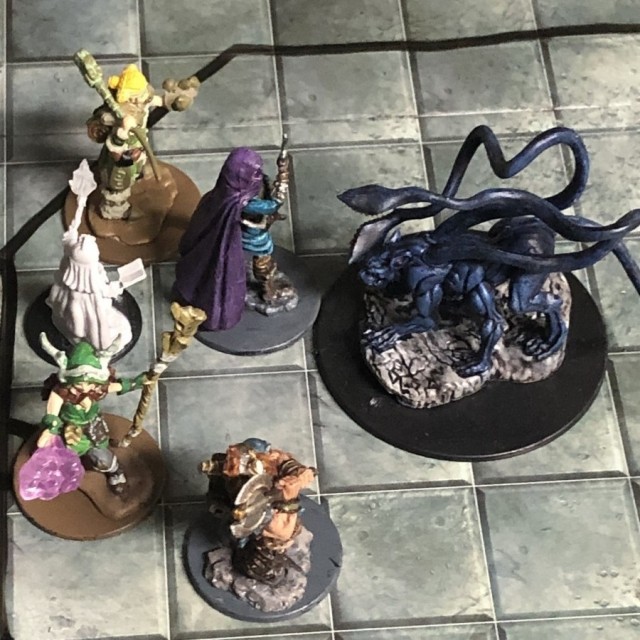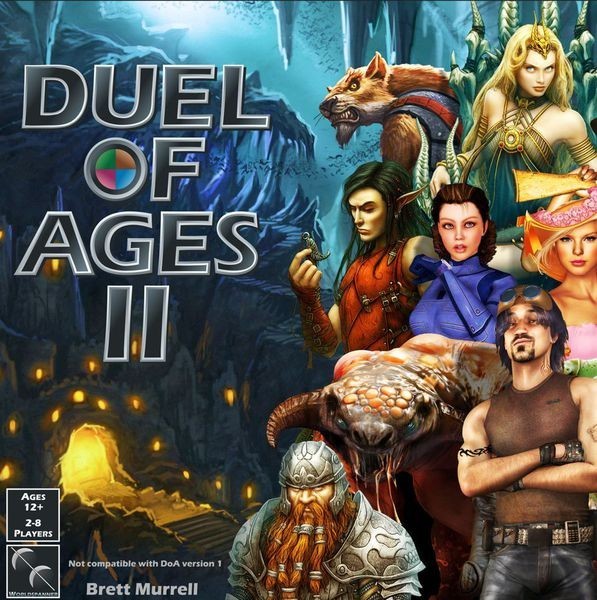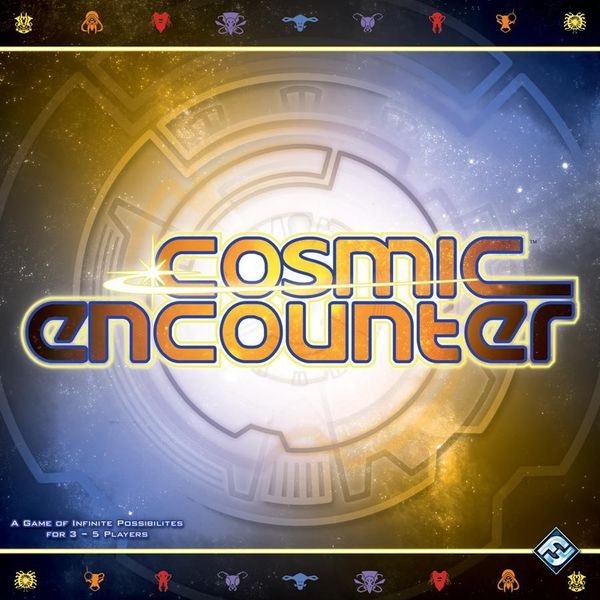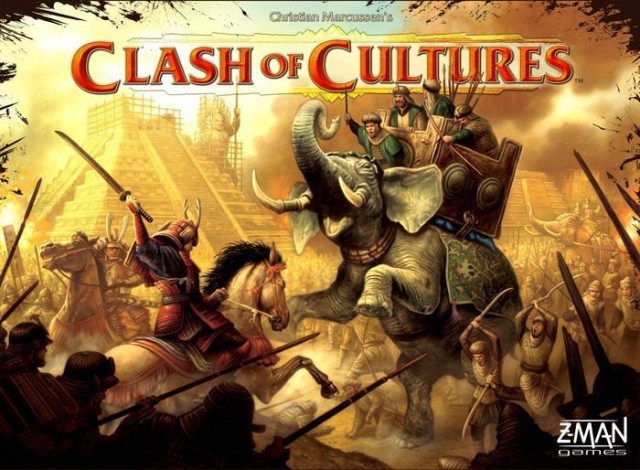Come on in for Next of Ken, where this week I'll be reviewing Homesteaders 2nd Edition and the newest offering from Stronghold Games, Core Worlds. All that, plus thoughts on why "gaming intelligentsia" members should take the time to actually play games before forming opinions--my two reviews today are proof of that. Join us, won't you?
It's all too common on gaming websites these days to run into people who have rabid opinions about games, but when you press them, it becomes obvious that they've never played they're mouthing off about at all. Internet opinions become an endless parade of parroted ideas. It's why you'll run into people who will say that A Few Acres of Snow is busted due to the Hallifax Hammer issue, but that's honestly the only thing they know about the game. It becomes a lengthy, repeated squawk of ideas and opinions that someone who read someone who read someone will spout endlessly on any internet soapbox they can find.
Some argue that "I've played so many games, I can form an opinion without actually playing it, just by reading the rules." If I've learned a hard lesson though these past few years, that notion is utter and complete hogwash. I find myself constantly surprised at how much I'll enjoy a game I thought I'd hate, or at how differently a game feels in play when compared to how it seemed reading through the rules. King of Tokyo and Summoner Wars are both like this--reading the rules will leave you going, "That's it?" Then you play them, and you realize just how much fun they really are.
Having said all that, let's just jump in to the pair of reviews, shall we? I promise, it all ties together.
"Why Do You Ride That Crazy Horse?" Inquires the Shadow with Little Remorse
Let's face it, I'm not one of the biggest fans of worker placement games. Generally, the mechanism is used in such a way that makes almost zero thematic sense. Sure, I get that I have people that work for me, and I can send them out to work their little midieval asses off, but the whole thing breaks down when you tell me that my dude can't bake bread this turn just because yours is at the moment.
And don't get me started on the "Love Hut" space in Stone Age...what, they've got one communal tent for humping? Man, cleaning *that* thing has got to be THE worst job in the world. "Hi. I'm Grog. My job? I clean up caveman spooge."
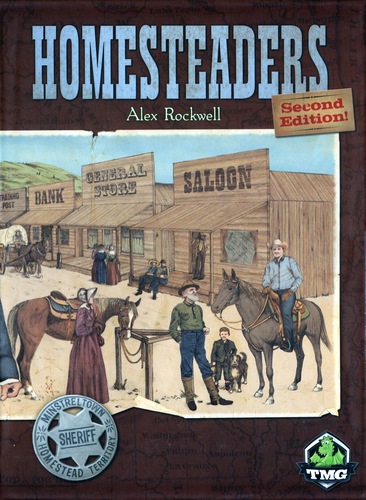 I do like western-themed games, though. It's a theme that isn't explored nearly enough, and even more rarely is it explored successfully. So when a review copy of Homesteaders 2nd Edition (Alex Rockwell, Tasty Minstrel Games, 2-4 players, 1 hour) arrived on my doorstep care of Game Salute (thanks, Game Salute!) I wasn't sure what to expect.
I do like western-themed games, though. It's a theme that isn't explored nearly enough, and even more rarely is it explored successfully. So when a review copy of Homesteaders 2nd Edition (Alex Rockwell, Tasty Minstrel Games, 2-4 players, 1 hour) arrived on my doorstep care of Game Salute (thanks, Game Salute!) I wasn't sure what to expect.
First things first--Homesteaders is pure Euro and makes no apologies for it. There's no getting around that fact. If you are absolutely, 100% against Euros of *any* kind, you may want to move on to my Core Worlds review below.
Still here? Good. You'll remember what we talked about in the opening paragraph? It totally applies here.
Because I have to admit that, y'know, Homesteaders is actually pretty damned good. This fits squarely in the Ken B. official category "Euros that Don't Suck". It's not a position easily earned, I assure you.
Homesteaders is all about building up the best Homestead (well, duh.) The game takes place over 10 auction rounds, where players compete for permits to create certain types of buildings. These buildings are numerous, and there are several in each category, allowing players who earn permits a nice choice of what to actually build.
You only start the game with one worker and six silver. The costs for creating buildings is in a variety of resources, and these resources are generated by activating certain buildings with your workers. Some buildings don't require a worker to activate, others have multiple spaces to allow workers to use a building multiple times. There is a large variety of goods in the game, including Wood, Food, Steel, Gold, Copper, and Livestock.
Winning an auction is what allows you to build, but losing an auction allows you to advance your marker on the Railroad Devvelopment track. Each advancement allows compensation, either by what's pictured on that spot or a choice of any one of the previous rewards.
Workers can be bought, but Workers will want to get paid, so having more dudes means higher payroll. Hey, cowpokes want to get paid, what can you do? You can go into debt to earn more money, but the more debt you take, the steeper penalties you'll have in the endgame scoring. You'll want to take some debt to be competitive, but how much can you manage?

The only mustache on the planet more bitchin' than Wilford Brimley's
The other commodity that you can earn and spend is a little odd in that it's a "Trade Chit." Spending a Trade Chit is often necessary for buying or selling, though you can do this at pretty much any time. I am still not sure what a Trade Chit represents, but it means if you don't plan carefully, you can have a lot of stuff to sell, but no access to actually sell it. It's definitely weird, and the best I can figure is this is meant to be an important throttle on your would-be economic engine.
That's pretty much the entire game. You go through auction after auction, beefing up your buildings, earning victory points, tuning your engine, and in the end, one Homesteader will have the highest VPs. However, you're not trying to impress some provost--you're hear to win by having the largest Homestead--and being the richest guy on the frontier. I'm sure your neighbors will be impressed, but that's about as far as it goes. More capitalism, less ass-kissing--an idea I can definitely get behind (Har har) in terms of game themes.
So why on earth do I like this? Several reasons. First up, the usual nonsense about worker placement doesn't apply here. Once I have a building, I send my workers there, no questions asked. None of this stupid 'cockblocking' stuff. You can't keep me from building a fence just because your guy is driving some pole at the moment (HI-YOOOO!) I hate how unthematic that makes worker placement games feel. Guess what? It doesn't happen here.
Second, even though the theme may seem thin,the choice and presentation of a theme can make all the difference in the world. I like the time period, there's some rich history there. I don't have to deal with a dour bored Euro-dude glaring disapprovingly from me at the cover. We're talking fluff here, but fluff can be important.
 Third is the playing time. Most Euros have a large deal of wash, rinse, repeat, but in montage style ("...and with every shot you show a little improvement...") and yet the design is so self-important that they actually think you want to spend over two hours doing that sort of thing. Homesteaders squeezes in nicely in an hour, so the ramping up is more immediately noticeable. It means you are more quickly exploring combinations of buildings, and going from nobody to Virgil Earp in one short hour. The mechanics are crisp, clean, and keep the game singing right along.
Third is the playing time. Most Euros have a large deal of wash, rinse, repeat, but in montage style ("...and with every shot you show a little improvement...") and yet the design is so self-important that they actually think you want to spend over two hours doing that sort of thing. Homesteaders squeezes in nicely in an hour, so the ramping up is more immediately noticeable. It means you are more quickly exploring combinations of buildings, and going from nobody to Virgil Earp in one short hour. The mechanics are crisp, clean, and keep the game singing right along.
Last is the awesome set of components. If you've had problems with Tasty Minstrel games in the past, let me assure you that they've solved their issues. Even though the first edition of Homesteaders suffered from a lot of production problems, second edition is a whole 'nother ball of wax, pardner. You've got awesome little bits in the shape of the various goods you're trading. You don't have white cubes, you have little cows. You don't have red cubes, you have little apples for food. What this does is inject a great deal of color and style into the game. It's funny how the dusty west should be barren and brown, and yet this game has more color than many other popular but extremely boring-looking Euros. Everything about the production is top quality--solid wooden bits, thick tiles, well-written rules.
I will warn you though that the first time you play this, you're not going to have a clue as to what you're building, what you should be bidding, and what you should be building towards. After one full game, you'll start to see the posibilities, how to get your buildings to interact, how to pursue certain strategies, and how better to get your economic engine revving.
So Homesteaders--a game I shouldn't like, but turns out I do way more than I expected. Good pacing, crisp gameplay, the perfect length for a game like this, enough meaty options and combos to keep your brain churning, all in a nice, attractive package with nice bits. It's not a game I'm going to bring out all the time, but this slides comfortably into the "Good Euro" wing of my game collection. While it may be a solid 7, it's an extremely rampagingly firm 7.
(Disclaimer: no cattle were harmed in the creation of the above review. Even game reviewers have standards.)
His Black Mane Sweeps Across His Face, Grim and Silent With a Steely Blue Gaze
 Core Worlds (Andrew Parks, Stronghold Games, 2-5 players, 60 minutes) is the latest in what I've dubbed the "2.0 Generation of Deckbuilders." I know, I know, you've heard the phrase, "But this is a different type of deckbuilder!" before--and we should shoot on sight the next marketer that spouts that phrase--but...this is a different type of deckbuilder.
Core Worlds (Andrew Parks, Stronghold Games, 2-5 players, 60 minutes) is the latest in what I've dubbed the "2.0 Generation of Deckbuilders." I know, I know, you've heard the phrase, "But this is a different type of deckbuilder!" before--and we should shoot on sight the next marketer that spouts that phrase--but...this is a different type of deckbuilder.
(Disclaimer: I am not a marketer. As I mentioned before, even game reviewers have standards.)
Core Worlds is a game that reflects a decaying galactic empire, and the barbic kingdoms that are choosing this moment to strike, moving their fleets gradually from the outer sectors all the way to the Core Worlds and ultimate victory. Players are rival barbarian lords who seek to establish the most powerful empire amongst their barbaric brethren. (Understand that "barbarian" here is relative; you've still got spaceships. If it helps you picture Conan flying a laser-beam blasting starfighter, cursing to Crom all the while as he counts the dead, then be my guest. Actually that would make for a pretty bitchin' t-shirt, now that I think about it.)
These rival usurpers are too weak to take on the titular (huh, huh) Core Worlds themselves as they begin their campaign of space conquest. Armed only with the basic supply of grunts and starfighters, they hope to conquer and plunder along the way, strengthening themselves for the final conquests to come.
Each player starts with an identical deck save for one Hero with a special ability, and a series of five decks are also laid out side by side. There are five cards relating to each of those decks with two spaces apiece and a little fleet token that is used to show how far the barbarians are advancing along the way. As they advance, new cards are revealed from the appropriate deck.
What do you do with these cards? I'm glad you asked, Space Arnold. Each player has a limited number of actions along with the energy his world(s) generate at the start of the turn. Players take turns using their actions to do a variety of things. Players can draft units from the revealed cards, spending an action and amount of energy to purchase it. Where does the purchased unit go? You guess it--the discard pile, to be reshuffled in and used as the game progresses.
Unlike many deckbuilders though, you're not slapping down the cards all in one turn and getting some benefit. Core Worlds uses permanence to much the same degree as a game like Nightfall. Before you can use these units you're drafting, you have to spend actions and energy to get them into your Warzone.
uses permanence to much the same degree as a game like Nightfall. Before you can use these units you're drafting, you have to spend actions and energy to get them into your Warzone.
From there, you use the infantry, vehicles, starfighters, space cruisers, robots, and even unique heroes to conquer worlds that are revealed in the central zone. The reason you do this is because worlds grant you some combination of victory points and energy production. Worlds have requirements to be conquered in two categories--Fleet Strength and Ground Strength. To conquer the world, you'll need to discard from your Warzone an amount of strength of the appropriate types. Unlike units, you don't place these into your deck, but instead place them in front of you, where they will provide energy for the remainder of the game. You also have the option to "Colonize" by placing a generic grunt or starfighter used in the invasion underneath the just-conquered planet; you do this primarily to thin your deck and give you faster access to the better units you've been acquiring along the way.
Cards in the central zone won't be available forever. After they've stayed out for one turn, a bonus energy chit is placed on them--if you draft them, you get the bonus energy. However, if a card starts the turn in the central zone with the bonus energy chit on it, it's discarded from play. As these barbarian fleets move along, these opportunities are only available for a short period of time.
Players are tuning their decks for the final assaults on the Core Worlds in sectors 9 and 10. These worlds have mammoth requirements to conquer but grant a monstrous amount of victory points. They also provide victory point bonuses based on certain things about your final deck construction; a typical thing is for one to grant you a bonus for each of a particular type of unit you have in your deck.
 Once these final two rounds pass, players tally up their points and see who is the winner. In case of a tie there are satisfactory tie-breakers. Much barbaric chest-thumping ensues as you count your space booty and interplanetary groupies.
Once these final two rounds pass, players tally up their points and see who is the winner. In case of a tie there are satisfactory tie-breakers. Much barbaric chest-thumping ensues as you count your space booty and interplanetary groupies.
Now, you folks already know that I'm a deckbuilding fan, and I've watched with great pleasure as this genre of games continue to evolve. What is so awesome to me about Core Worlds is how it shifts the balance from purchasing strategy to playing strategy.
What do I mean by that? For most deckbuilders, the lion's share if not all of the decisions are in the purchasing. If you're making the right purchasing decisions, your deck should basically play itselft. Think Dominion, where your hand of cards has an "obvious" tact for the turn...there's not much thought, because you've made those decisions when you purchased the card in the first place. And a lot of deckbuilders are like that.
Core Worlds turns the concept of "smart buys, brain-dead gameplay" on its ear.. Yes, purchasing and drafting units is extremely important. But because you have a limited number of actions, and drafting a card costs you both an action as well as precious energy, the focus of the entire game is not on the purchasing process. In fact, there will be plenty of turns where you'll grudgingly draft a unit, knowing you'll need it but cursing at what you're having to pass up to get it.
A lot of this has to do with the permanence factor I mentioned previously. You have to take the time to deploy these units before you can use them, and that also takes energy and actions to get them into play. So you're looking for this careful balance of getting the new stuff you need, conquering enough worlds to give you energy as well as crucial special abilities, and deploying units that you may not need right away but you'll need to stockpile for a future conquest. It's a furiously tight balance, and there will be lots of time where you have many things you want to accomplish but not enough energy and/or actions to get it all done.
The shift to putting more emphasis on skilled play while also retaining the importance of good purchasing is highly welcome. You'll have important decisions to make as the game goes on. Spend too much time conquering worlds, and you'll have fistfuls of energy and nothing to spend it on. Buy too many expensive units with not enough energy to support them, and they'll just clutter up your hand and gum up your ability to develop a powerful Warzone. Some cards have great "in play" effects, but if you use them for an invasion, they'll go into your discard, removing your access to that ability. Is getting that world right now worth more than the benefit you were getting from the invading card? And hey, if I'm worrying about all this stuff, will the guy next to me nab that card I really, really need?
As quality games like Core Worlds come out, it will be harder and harder to go back to those deckbuilders where the gameplay itself is on autopilot.
What's also great about this game is how it taps into the CCG nature of "typing" cards. You know how when you played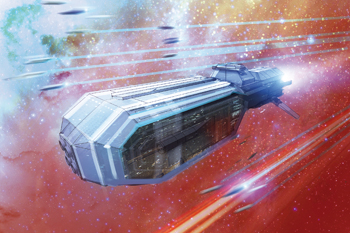 Magic the Gathering, saw your first Goblin, and THEN saw your first Goblin King? Core Worlds features cards that have characteristics such as "Infantry" or "Robot", and then uses other cards to key in on that type and provide you bonuses and synergies based on that.
Magic the Gathering, saw your first Goblin, and THEN saw your first Goblin King? Core Worlds features cards that have characteristics such as "Infantry" or "Robot", and then uses other cards to key in on that type and provide you bonuses and synergies based on that.
This opens up a diverse array of strategies. While it's tempting to start gunning for a particular Core World from the get-go, you have to understand that if you don't plan well, someone will snatch it away from you. Also, you have to realize that if you pass up opportunistic point grabs along the way, in the end those missing points could cost you dearly.
In my last game of this that we played during the Super Bowl, I had my engine set up flawlessly--I was dropping Cruisers for cheap, had the buffest Warzone you could imagine, and timed my strikes just right so that I was able to claim not one, but TWO Core Worlds. But along the way, I had been so laser-focused that I'd skipped a few opportunites to grab points. And guess what? I lost by two points. If I'd taken the time to smell the roses and hot been so totally keyed in on my little Cruiser deploy engine, I could've snuck in an extra few points, and that would've made all the difference.
If there is a cricism of the game, you need to be aware that the player interaction is very indirect. Your only ability to screw other players is to take cards that they want. But don't mistake that for "no interaction." We've already had several instances of players cursing audibly when a card they wanted was snatched away from the Central Zone. Also, because you know that other players might swoop in and take something you'll like, it often forces your hand to go ahead and grab it first, even if the timing is rotten and there are other things you'd like to accomplish. The tension is palpable when you take the risk, leaving out something you want just to build your fleet up, then you have to sweat and wait for it to come back around to you. And yes, expect a loud "DAMN IT!" when you nab something that someone else really wanted.
To which you can respond in your best Schwarzenegger voice, "By Space Crom's Stellar Beard, condsiduh dis a Galactic Divorce!"
My recommendation? This is one of those titles that may get people off the fence who haven't liked deckbuilders previously. With the deckbuilding aspect not being the dominant element of the game, and the focus being put on solid play and strategy rather than just smart buys, this might just be the game to make a few converts.
How would I compare it to Eminent Domain, another space-themed deckbuilder that I enjoyed? Despite their theme, these are radically different games. It's hard for me to say right now which I like better. Eminent Domain does a great job of developing a deck specialization and the flexibility of cards as roles/actions keeps the game moving very well. But Core Worlds does a much better job of giving you that feeling of "Mine!"--that these ships, these worlds, these planets are MINE, I earned them, I paid for them, I conquered them. Eminent Domain never feels like you're actually conquering, just discarding some tokens. At any rate, I really like the gameplay of both, and it's too early to call a favorite here. I'm happy owning both.
As for Core Worlds, the lack of direct, player-on-player conflict may be a bummer to some, but with everyone competing for units and worlds in the Central Zone, there is plenty of actual player interaction. You also get a satisfying sense of building up military strength and executing smart combos to give you an edge on your foes. Toss in gorgeous art (seriously, there is some pretty awesome artwork in this game), solid quality tokens and cards, and an extremely cool theme, and you've got yourself a winner. This is one of those games that came out in the waning days of December 2011; I'm counting it for my games of this year, and I expect to see it mentioned again in my "best of 2012" lists when the time comes. I like it a lot, and I think there's a strong possibility you will too. I will warn you that the first time you play, you will play badly. Stick with it; it's worth that second play. Find a friend who has this and give it a try.
That's going to do it for this intergalactic homesteading episode of Next of Ken. Until next week, try to avoid the chilling wrath of Space Crom, who like Virgil Earp could easily and skillfully be portrayed by Sam Elliott. Until then, I'll see you in seven.
 Games
Games How to resolve AdBlock issue?
How to resolve AdBlock issue? 


